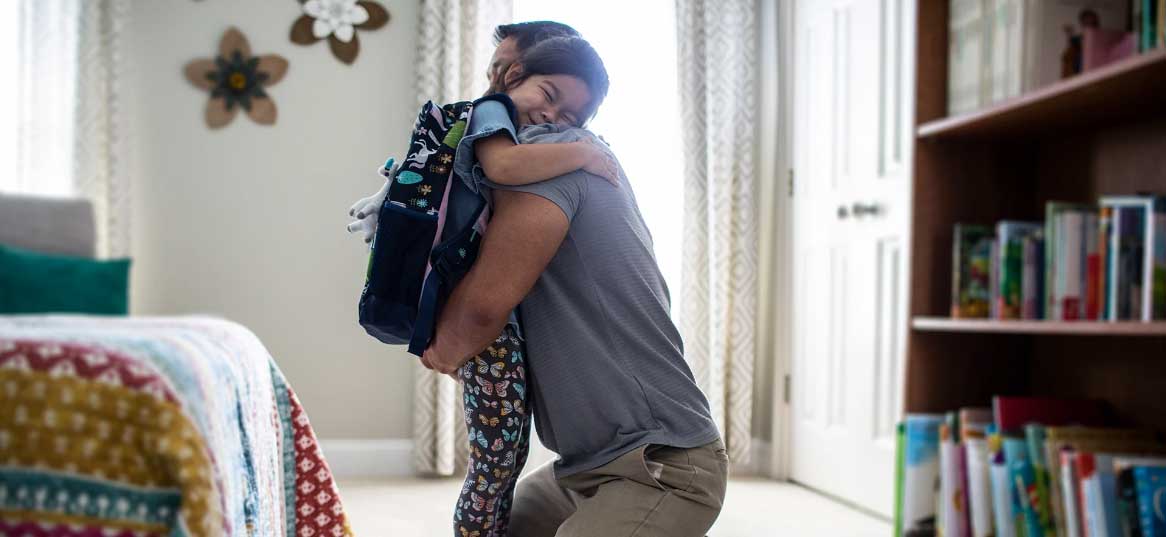Parenting can be a harrowing experience. We worry about our children at every age and stage of life. Whenever our babies don't eat enough, we worry. We worry about our toddler scraping their knees. We also worry about how our teenagers will handle school pressure.
Many of these concerns are trivial, making us lose sight of the things that matter, like whether our children will remain Muslims. As parents, our primary mission is to protect and prepare our children for the afterlife.
Allah instructs us in the Quran:
"O, believers! Keep yourselves and your families safe from a fire that is fueled by people and stones." [Quran, 66:6] This seems daunting in today's world. We live in a world flooded with un-Islamic ideas and values, from cartoons to movies to teachers.
How can we best protect our children? I thought about my experience as an Imam for the past decade and all the kids I've met in my community. Throughout my career, I have interacted with children and youth from all backgrounds, and some have stood out for their devotion to Islam and beautiful character.
After meeting these kids, I wondered: What did their parents do differently? My reflections led me to realize that all of their parents shared five essential habits:
1-They often take their children to the mosque.
Most of them are brought to the masjid daily by their parents. For example, one father went to the masjid multiple times a day with his children practically every day. Children can meet other children raised similarly in the masjid, allowing them to learn more about Islam.
Masjids tend to be underestimated in general. Even if nothing is happening or it is empty, being in the masjid has a spiritual benefit. Simply waiting in the masjid between prayers is a tremendous reward in our deen. Our mental health is strengthened by its serenity and constant reminder of our Creator, even that of a child.
2-Their children are best friends.
In a non-overbearing manner. Despite having close peers their age, these kids remain close to their parents. Their intimate relationship allows them to share their experiences and talk about the entire day with their parents. Developing this level of rapport and connection between parent and child takes time, but it results from spending a lot of time together. The importance of being present with your child cannot be overstated. By doing this, we create a sense of closeness and make it easier for us to communicate.
3- The third benefit is the development of supportive peer relationships.
Spending time with families with similar-aged children, who are raising their children similarly, is essential to these parents. Parents can befriend their children, but they cannot be peers with them. Providing your children with a peer connection is necessary, but it shouldn't undermine the values and ideals you are trying to instill in them.
You need to be aware and selective about the friends your children are making and, ideally, play a role in ensuring they are spending time with the right people. It is best to establish this as soon as possible. It takes a village to raise a child, as the saying goes. Having found like-minded families, these parents have created their town.
4 - They take Islamic education seriously
Youth halaqah, weekend schools, etc., are used by them. However, they go beyond this as well. Parents like these are committed to learning about Islam themselves. Only what is contained in the vessel can be poured out.
Your kids need religious education at home even if they attend Islamic programs. To teach their religion, provide them with resources to learn, and have discussions about the "why," such as why God asks us to worship Him and why evil exists, you must be educated.
5 - They own complex topics in conversation.
Nowadays, complex topics such as sex, masturbation, drugs, and gender identity are easily accessible to kids. In a public school, a playground, or while browsing online, they are often exposed to Islam too early.
The discussion needs to be owned by you. Communicate with them openly and honestly, allowing two-way communication. It is essential that your kids feel comfortable talking to you about these topics.
Not only should you frame these issues within the framework of Islamic ethics, but you should also help them navigate the challenges of Muslim children at school. Build their confidence in social settings by role-playing situations that might occur in the classroom or on the playground.
Even though raising children in today's world is no easy task, we can take comfort in knowing that Allah will provide ultimate guidance after we do our best. We pray that Allah will guide our children and us along His Straight Path - Ameen.
2cad5544-2.png)




